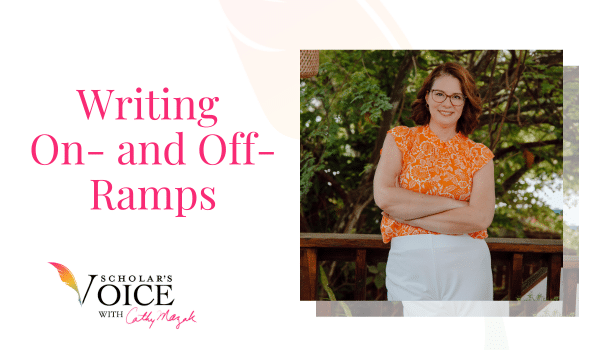The Economics of Writing

Have you ever looked at your writing projects through the lens of economics? I’m showing you how, and why you should on this episode of The Academic Womxn Amplified.
MORE DETAILS
I love listening to podcasts; they’re one of my favorite ways to give my brain a little break and think about something other than academics for awhile. This summer I stumbled on a great one that I not only found fascinating, but realized could be applied to our writing project management, so I had to share it with you all! The podcast is called Planet Money, and in their summer session they aired an episode about decision-making that might just help you decide where to put your writing resources.
On this episode of The Academic Womxn Amplified, I’m explaining how to apply these economic principles to your project decision-making process. If you’re interested, you can check out the Planet Money podcast here.
Opportunity Costs
Any time you decide to do something there is something else you’re not doing. The true cost of doing anything is the next best alternative you’ve got to give up to do it. What could you do in place of this thing you’re choosing? That’s the opportunity cost.
When choosing to work on one project from the (most likely many) options you have in your pipeline, you’re giving up the other projects–making them all take longer, or not get done at all.
AND when you work on email during your tiger time, you’re giving up the writing project that you could be moving forward. What’s the opportunity cost of working on writing projects that are low-pay off or not aligned with your mission? You’re giving up the opportunity to work on the on-mission, high-impact projects.
“Any time you decide to do something, there is something else that you’re not doing.” -Cathy Mazak
The Cost-Benefit Principle
Which of your writing projects has benefits that outweigh the costs? That is the project you should focus on. When doing your cost-benefit analysis, be sure you consider ALL the things that might be beneficial for you:
- Getting a job
- Career advancement
- Building your academic brand
- Improving your skill or knowledge
- Boosting career satisfaction
- Giving you joy in your work
The point is, consider all the things that are benefits for you, and weigh them against the costs (including those opportunity costs we talked about).
Sunk Costs
Sunk costs are costs that cannot be reversed. When you work on a project, you can’t get your time and energy back. Economists tell us not to consider sunk costs when making decisions. Sticking with something that is not working, won’t get your time back, but it will suck up even more of your precious time and resources. So, let those projects that don’t meet your cost-benefit analysis go–even if you’ve spent hours and hours on the project. You can never get those hours back, but you can save all the time needed to complete it.
This is why we talk about aligning projects with your mission statement and letting go of out-of-alignment projects in our programs. Be aware of those sunk costs!
Applications for our Amplify program are now open.You’ll get help implementing these economics principles for your own writing decision-making process, along with a whole host of other benefits, including one-on-one coaching, support from a cohort of like-minded womxn, education and resources.
Don’t miss out on your opportunity to join a cohort; apply for Amplify here.
Connect with me:
RELATED PODCASTS
Stay current in Academic Publishing
Subscribe to our newsletter:
In the Pipeline
writing tips, publishing trends, reading recomendations, free workshops





